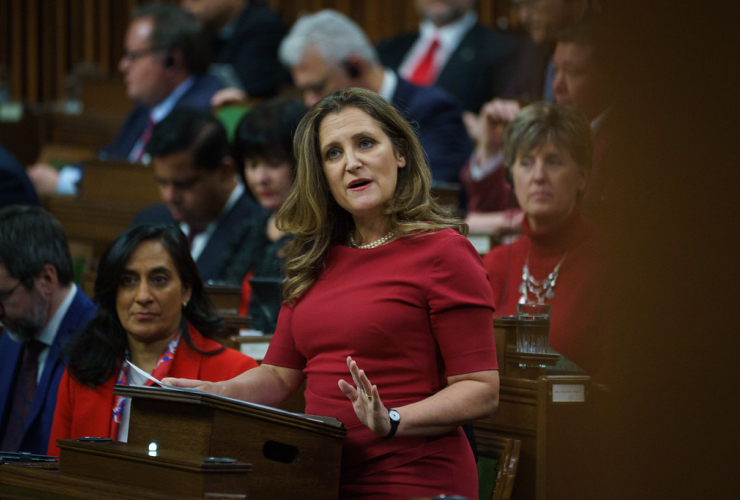These days, the financial news section features glowing reviews of the oil and gas industry’s quarterly earnings. Meanwhile, in the current affairs section we see the affordability crisis being discussed and in the breaking news we will soon see headlines announcing another intense wildfire season and the heartbreaking consequences of climate disasters.
Let’s connect the dots between this news. Fossil fuels are the main cause of climate change. Climate change increases the frequency and severity of extreme weather events, such as droughts and last year’s devastating wildfire season. Climate scientists and forestry professionals have repeatedly explained that increased unseasonable dryness due to climate change causes fires to burn brighter, longer, more easily, and spread more quickly. This has enormous costs and consequences.
In 2023, the cost of pollution to society from Canada’s oil and gas companies was estimated at 52 billion dollars. These calculations were carried out using the Analysis of the Canadian government’s social cost of greenhouse gas emissions.
Given the costs of climate change and the exorbitant profits of those who literally sell fuel to the fire, shouldn’t the oil and gas industry pay its fair share of the damage?
In 2023, four of Canada’s major oil companies (Cenovus, Imperial Oil, Suncor and Canadian Natural Resources) made a combined annual profit of more than $25 billion. While that’s down from 2022’s record earnings of $33.7 billion, it’s still the second-most profitable year in the oilpatch’s history.
Cenovus, Imperial Oil, Canadian Natural Resources and Suncor are part of a growing chorus of fossil fuel industry advocates who say they are now willing to address the climate crisis. In advertising campaigns, they position themselves as your neighborhood’s friendly and good energy providers. Surely then they must invest heavily in reducing emissions and diversify their businesses to provide clean energy to customers. That’s what a good energy supplier would do.
But that is not the case. Our review of the annual reports of these four companies indicates that together they spent more than $16 billion last year to expand oil and gas extraction, thereby increasing their contribution to climate change. Suncor even sold its wind and solar assets for a profit of $302 million by early 2023 and eliminating 1,500 jobs while paying new CEO Rich Kruger $36.8 million in his first year.
As these companies are doubling down on oil and gas expansion, rather than reinvesting even a small margin of their profits into real climate solutions, the federal government should include a windfall tax when it delivers its budget today and use those funds to increase the government’s climate impact. action.
It is not too late for the government to ensure the fossil fuel industry pays its fair share. A windfall tax on oil and gas companies, similar to those in Europe and the United Kingdom, would help rein in their excessive profits and could help deliver climate solutions that need government financial support. Analysis by the Parliamentary Budget Office estimated that applying the Canada Recovery Dividend to oil and gas profits in 2022 would have generated $4.2 billion in one year alone. Isn’t it time that polluters pay for the mess they cause?
The federal government should include a windfall tax for #OilAndGas companies when it delivers the #Budget2024 and use those funds to increase the government’s #ClimateAction, writes @EmBelliveau @envirodefence #cdnpoli #ClimateChange #EmissionsCap
If Canada were to truly take urgent and necessary climate action, levied funds could be directed toward realistic and scalable climate solutions. These include community-led renewable energy, improving our electricity grids, ending energy poverty through direct support for home energy efficiency upgrades and deep retrofits, and committing to reliable operational funding for public transport. As Canadians grapple with the affordability crisis, implementing these types of climate solutions can ease financial burdens while improving community resilience.
“Canada tackles climate crisis by making polluters pay their fair share”: that’s the headline we want to see in every section of Canadian newspapers.
Emilia Belliveau has worked on climate and environmental justice issues since 2012 as a community organizer, academic researcher, activist in environmental non-profit organizations, and policy analyst at the British Columbia Ministry of Energy. Before joining Environmental Defense, she worked with remote First Nations in British Columbia to accelerate the diesel transition with community-led renewable energy and energy efficiency projects. Emilia has a master’s degree from the University of Victoria (UVic). At UVic she participated in the Corporate Mapping Project, which investigated how the fossil fuel industry organizes and exercises corporate power.

